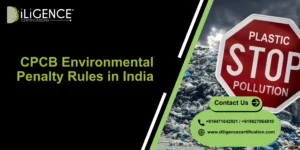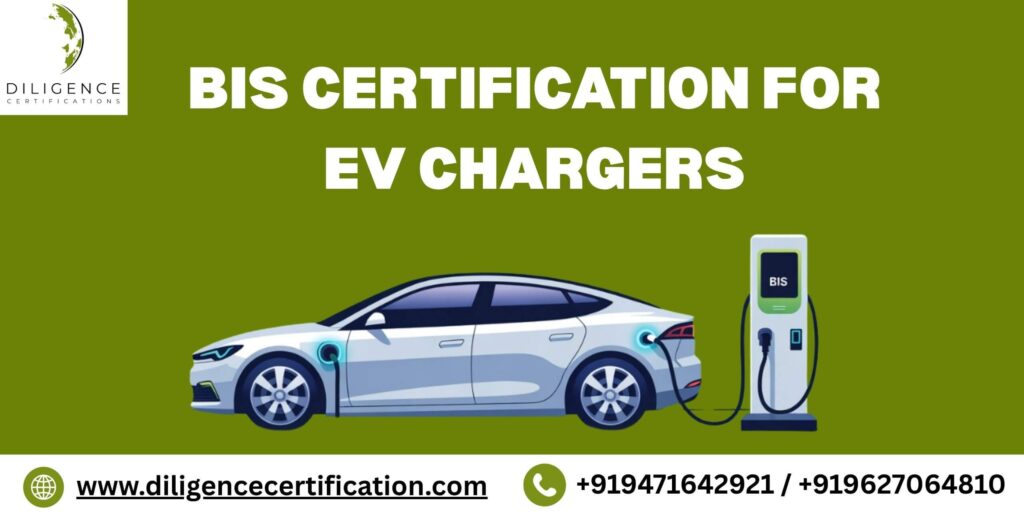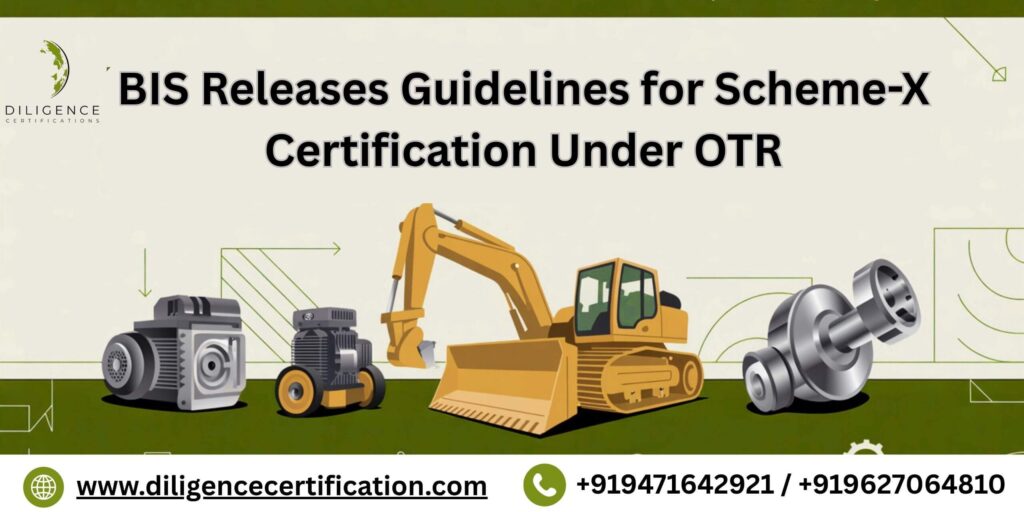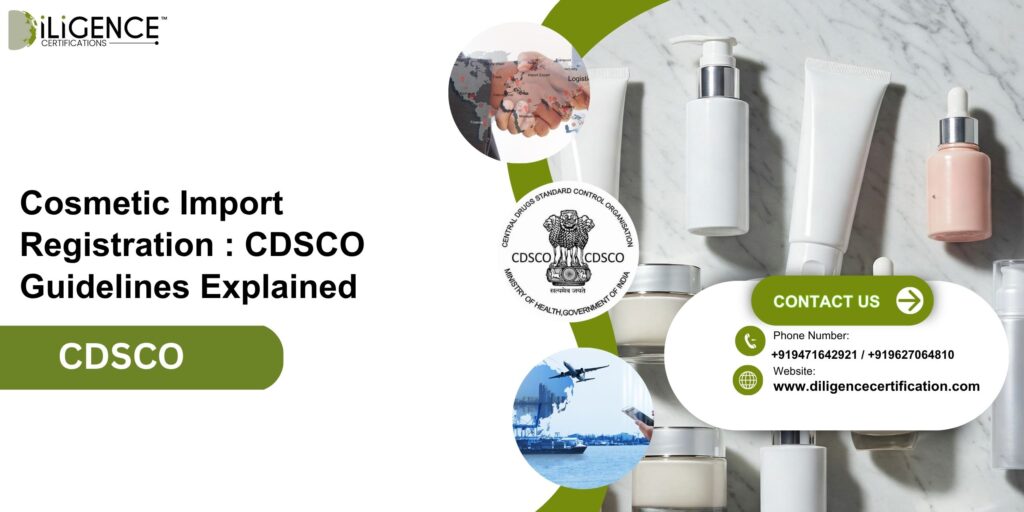- BIS Standards for EV Chargers are mandatory to ensure safety, interoperability, and performance of EV chargers in India.
- Governed under IS 17017, these standards align with international norms to promote uniform EV charging standards India.
- This guide from Diligence Certifications explains the certification process, documents, types, and benefits of BIS certification for EV chargers.
Introduction

In 2023, an Indian EV startup launched an affordable DC fast charger that could power a car in under 45 minutes. But despite the innovation, the chargers never made it to the market. Why? They lacked BIS certification—a non-negotiable compliance requirement in India.
Many businesses face similar roadblocks. Whether you’re manufacturing, importing, or selling EV chargers, one missing certificate can stall your entire operation.
That’s why understanding the BIS standards for EV chargers in India, especially under IS 17017, is critical for success in the EV ecosystem. This blog breaks it down—what it is, why it matters, how to get certified, and how Diligence Certifications can help you power ahead.
What Are BIS Standards for EV Chargers?

BIS (Bureau of Indian Standards) standards for EV chargers are regulatory specifications that define technical and new safety standards for electrical vehicles (EV) charging equipment in India. These standards are critical to support India’s EV infrastructure and ensure:
- Safe and consistent EV charging operations
- Interoperability between chargers and EVs
- Compliance with global standards
Introduced as part of India’s push for clean mobility, BIS certification is now mandatory for manufacturers and importers of EV chargers.
Why Are BIS Standards for EV Chargers Important?
The rapid rise of EVs in India calls for a reliable and standardized charging infrastructure. Here’s why BIS certification for EV chargers is essential:
- Safety Assurance: Prevents risks like electric shocks, fire, or overcharging.
- Interoperability: Enables universal charging across different EV brands.
- Consumer Confidence: Certified products are trusted and legally compliant.
- Global Compatibility: Aligns with international norms like IEC 61851 and 62196.
According to the Diligence Certification, BIS ensures every EV charging station follows a common, reliable framework.
Understanding IS 17017 – The Core Standard for EV Chargers
International Standards (IS / IEC):
- IEC 61851
- Electric vehicle conductive charging system (general standard)
- Covers A and DC both charging
- IEC 62196
- Plugs, socket-outlets, vehicle connectors and vehicle inlets
- Type 1, Type 2, CCS, CHAdeMO connectors
- IEC 60364-7-722
- EV charging installation in buildings
- ISO 15118
- Vehicle-to-Grid (V2G) communication
- Plug & Charge protocol
- IEC 62840
- Battery swap systems
In Indian Standards (IS):
BIS (Bureau of Indian Standards) has also adopted several EV charger standards, such as:
- IS 17017 Series
- IS 17017-1 (IEC 61851-1:2017 equivalent): General requirements
- IS 17017-2-1 (IEC 61851-23 equivalent): DC charging
- IS 17017-2-2 (IEC 61851-24 equivalent): Communication protocol
- IS 17017-1 (IEC 61851-1:2017 equivalent): General requirements
- IS 17017-25
- DC fast charging communication
- DC fast charging communication
- IS 17017-21 to 24
- Covers AC and DC connectors
- Covers AC and DC connectors
- IS 17017-2-6
- DC off-board charger
- DC off-board charger
- IS 17017-3
- EMC (electromagnetic compatibility) for EV chargers
Types of EV Chargers Covered Under BIS Standards
EV chargers are broadly categorized under AC and DC types. Let’s explore each with respect to BIS requirements:
AC EV Chargers (Slow to Moderate Charging)
- Voltage: 230V single-phase / 415V three-phase
- Power: 3.3 kW – 22 kW
- Usage: Home charging, office premises
- BIS Standard: IS 17017 (Part 22)
DC EV Chargers (Fast Charging)
- Voltage: 48V to 1000V
- Power: 30 kW – 350 kW
- Usage: Public charging stations, highways
- BIS Standard: IS 17017 (Part 23, 24)
Bharat EV Charger Standards
- Bharat AC-001 – 10 kW AC charger (IS 17017 reference)
- Bharat DC-001 – 15-30 kW DC charger
Though superseded by newer global standards, these are still used in some legacy applications.
Required Documents for BIS Certification of EV Chargers
Diligence Certifications assists in gathering the correct documentation for BIS registration. The list includes:
- Product manual with technical specifications
- Circuit diagrams and PCB layout
- Type test reports from BIS-approved labs
- Trademark registration or authorization
- Factory license or registration documents
- Power of Attorney (if applicable)
- ISO 9001 certificate (for FMCS route)
- Details of manufacturer/importer
BIS Certification Process for EV Chargers in India
Diligence Certifications simplifies the BIS certification journey. The process involves:
Step 1: Product Testing
- Conducted at BIS-recognized laboratories
- Ensures compliance with IS 17017 and other applicable standards
Step 2: Document Submission
- Filing application with test reports and required documents
Step 3: Application Review
- BIS examines documents and test reports for compliance
Step 4: Grant of BIS Certificate
- On successful review, a BIS registration number is allotted
Step 5: Marking and Surveillance
- Certified chargers must display the BIS Standard Mark

Validity and Renewal of BIS Certificate
- Initial Validity: 2 years from the date of issue
- Renewal Period: Up to 5 years
- Requirements for Renewal: Updated test reports and continued manufacturing standards
Timely renewal helps maintain uninterrupted product distribution and legal compliance.
Who Needs BIS Certification for EV Chargers?
- Manufacturers (domestic and foreign)
- Importers and traders
- EV Charging station providers
- OEM suppliers and fleet owners
Any entity dealing in EV chargers must ensure their products conform to BIS certification guidelines under IS 17017.
Benefits of BIS Certification for EV Chargers
Getting certified brings multiple advantages:
| Benefit | Explanation |
| Legal Compliance | Avoids penalties and product bans |
| Market Access | Products can be sold in India |
| Consumer Trust | Enhances brand value |
| Safety & Quality Assurance | Reduces liability and warranty claims |
| Competitive Advantage | Certified products stand out in tenders |
| Government Tenders | Required for public infrastructure participation |
Eligibility Criteria for BIS Certification of EV Chargers
To apply for BIS certification under the IS 17017 standard for EV chargers in India, the following entities are eligible:
1. Indian Manufacturers
Any company manufacturing AC or DC EV chargers within India is eligible to apply under the Compulsory Registration Scheme (CRS).
Conditions:
- Must have a registered manufacturing facility in India
- Must conduct product testing at a BIS-recognized laboratory
- Should possess relevant technical and legal documentation
2. Foreign Manufacturers
Overseas companies manufacturing EV chargers outside India can apply under the Foreign Manufacturers Certification Scheme (FMCS).
Requirements:
- Must appoint an Authorized Indian Representative (AIR)
- Must provide a valid ISO 9001 certificate for the manufacturing site
- Product testing must be done at a BIS-approved lab in India
3. Importers & Distributors
Importers and brand owners who market EV chargers under their own label must:
- Ensure the OEM (manufacturer) is BIS certified
- Have authorization to use the BIS license on the product
- Apply under their name only if they own or operate the manufacturing unit
4. EV Infrastructure Providers
Companies setting up public charging stations (PCS) or operating charging networks must ensure:
- All EV chargers installed are BIS certified
- Procurement is made only from licensed manufacturers or importers
EV Charging Standards in India: Local & Global Harmony
India follows a mix of international and localized standards for EV charging, such as:
- IS 17017 Series (based on IEC 61851, 62196)
- Bharat EV Charger Specifications
- CHAdeMO and CCS2 plug standards for DC charging
- AC Type-2 connectors for public AC stations
The aim is to ensure a smooth transition toward universal charging infrastructure.
Current Scenario of EV Charger Certification
As Per Diligence Certifications:
- The DC fast-charging segment is rapidly expanding in metros and highways.
- AC public charging stations are growing in housing complexes and malls.
- State EV policies are making BIS certification mandatory for subsidies.
This makes BIS compliance not just a legal formality, but a critical success factor for your EV business.
Key Highlights: BIS Standards for EV Chargers
- The Bureau of Indian Standards (BIS) mandates BIS standards for EV chargers under IS 17017 to ensure safety, interoperability, and quality.
- BIS CRS registration is compulsory before selling or importing EV chargers in India.
- EV chargers include AC slow chargers, DC fast chargers, ultra-fast chargers, and public charging stations, all covered under BIS certification.
- The BIS CRS certificate is valid for two years and renewable if no major product changes occur.
- Benefits of BIS certification include improved user safety, product credibility, legal compliance, and support for India’s green mobility mission.
- Required documents include application forms, ISO certificate, test reports from BIS-approved labs, trademark documents, and an affidavit for foreign manufacturers.
- IS 17017 is aligned with international IEC 61851 standards but adapted for India’s grid, climate, and safety needs.
- The certification process takes around 4–6 weeks if documents and samples are in order.
- EV charging standards in India are evolving to include smart charging, solar-integrated systems, and battery swapping, so proactive compliance is essential.
Conclusion
The future of mobility is electric—and BIS Standards for EV Chargers are at the core of this transformation. Whether you’re a manufacturer, importer, or EV infrastructure provider, ensuring compliance with IS 17017 is the key to market success.
With Diligence Certifications, you get expert guidance, simplified documentation, and faster BIS approvals—all under one roof.
India’s electric vehicle revolution isn’t just about cleaner mobility—it’s about building a safe, scalable, and standardized charging ecosystem. At the heart of that lies BIS certification for EV chargers, governed by the robust IS 17017 standard.
Whether you’re a local manufacturer, global EV brand, or a startup innovating in the charging infrastructure space—BIS compliance is no longer optional. It’s your passport to market access, government tenders, consumer trust, and sustainable growth. From safety and performance to technical interoperability, the BIS standards for EV chargers in India serve as the benchmark for quality. With stricter enforcement, subsidy linkage, and rising EV adoption, getting certified early ensures you’re not left behind.
Frequently Asked Questions (FAQs)
Is BIS certification mandatory for EV chargers?
Yes, it’s mandatory under IS 17017 to ensure safety, quality, and compliance with national standards.
What is the main BIS standard for EV chargers in India?
The key standard is IS 17017, which governs technical, safety, and performance requirements for AC and DC EV chargers. It is based on international standards like IEC 61851 and IEC 62196.
Can foreign manufacturers apply for BIS?
Yes, through the FMCS (Foreign Manufacturers Certification Scheme) route with the help of an Indian Authorized Representative.
How long does it take to get BIS certification?
The timeline typically ranges between 4–8 weeks, depending on product complexity and documentation.
Is BIS certification applicable to portable EV chargers?
Yes. All EV charging equipment—including portable chargers, wall-mounted AC chargers, and mobile DC fast chargers—must comply with IS 17017 and be BIS certified if sold in India.
Can a startup apply for BIS EV charger certification?
Yes, startups and MSMEs are eligible and encouraged to comply with full market access and government incentives.
How often do BIS standards for EV chargers get updated?
No. A separate BIS certification is required for each charger model or product variant, especially if the technical specifications differ. Grouping is allowed only under specific BIS norms.
How do I check if a charger is BIS certified?
Visit the BIS Registration Portal and use the CRS Product Certification Search. You can enter the model number or registration number to verify if the charger is legally certified.
Do I need separate BIS certification if the same charger is made in two locations?
Yes. If the manufacturing facility changes, you must apply for a new BIS license even for the same model, as the certification is linked to both product and location.
Can one BIS license cover multiple EV charger models?
No. A separate BIS certification is required for each charger model or product variant, especially if the technical specifications differ. Grouping is allowed only under specific BIS norms.








 BIS Certification
BIS Certification
 CDSCO
CDSCO
 CPCB
CPCB
 LMPC
LMPC
 WPC Approval
WPC Approval
 Global Approvals
Global Approvals
 TEC
TEC
 ARAI
ARAI
 BEE
BEE
 ISO Certification
ISO Certification
 Drone Registration
Drone Registration
 NOC For Steel
NOC For Steel



















 Business Registration
Business Registration















 Legal Services
Legal Services
 Trademark Registration
Trademark Registration
 Copyright Registration
Copyright Registration
 Patent Registration
Patent Registration
















































